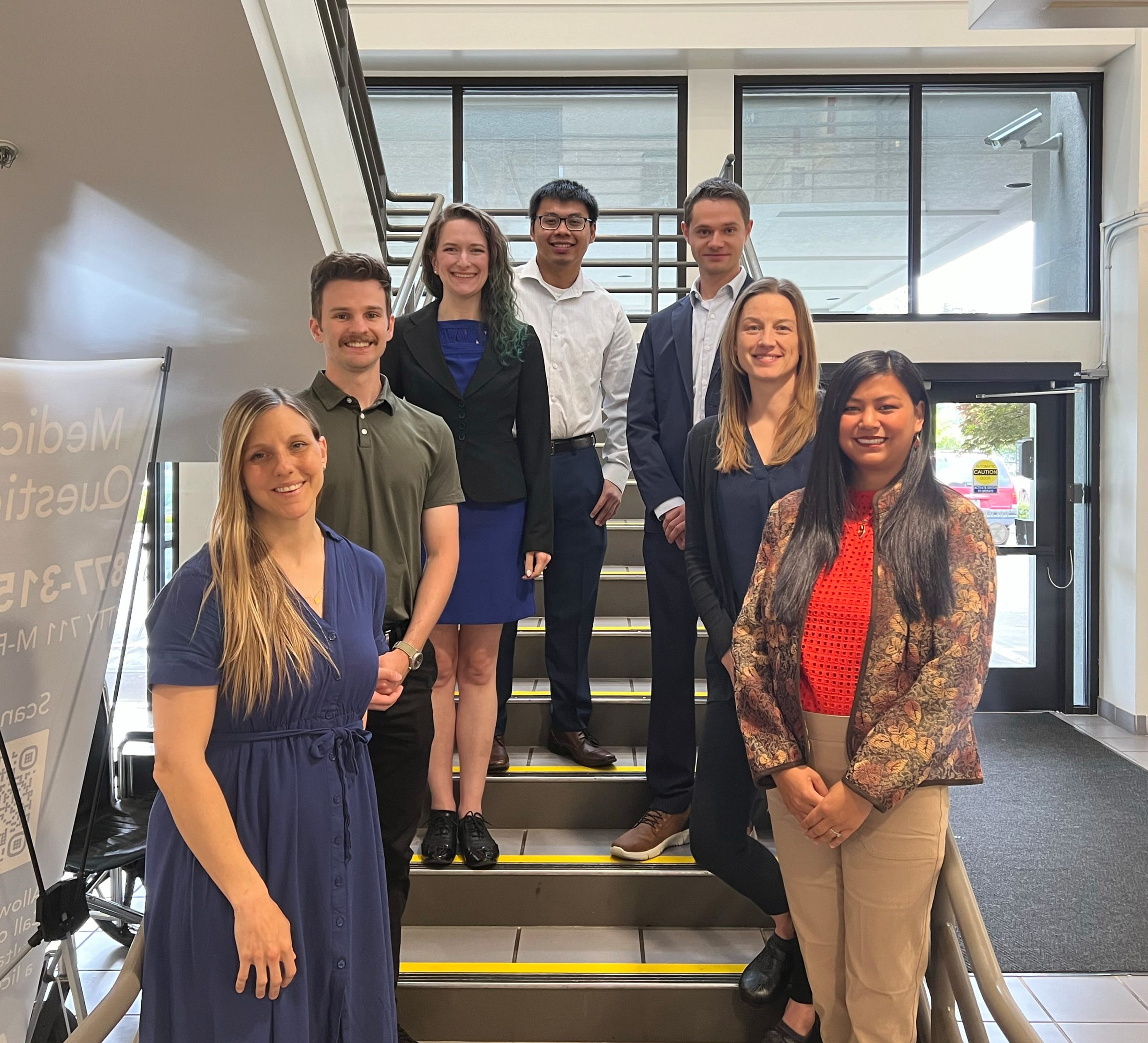Patient describes lung cancer journey as “easy” thanks to Providence’s multidisciplinary cancer care team
Lung nodule clinic: Game-changing technology, superb physicians and caregivers help lead great-grandmother from diagnosis to recovery in two months.
SOUTH PUGET SOUND – Lung cancer is the leading cause of cancer death in the U.S. Each year, it claims more lives than breast, prostate, and colon cancers combined. However, thanks to a dedicated multidisciplinary team at St. Peter Hospital and the state-of-the-art Ion robot-assisted bronchoscopy technology, Providence has been able to screen for early detection and support patients on their journey to recovery from lung cancer.
The scary thing about lung cancer is that it often does not have symptoms. Most patients find out they are victims of lung cancer when the disease is at an advanced stage. Jean Sheffield, a resident of South Chehalis, could have been another victim of lung cancer. Thankfully, she connected with the Providence Lung Nodule Clinic team in October, and before Christmas she was recovering from lung cancer surgery.
“That team was really incredible. The meeting with the doctors, tests, scans, follow up calls with the nurse navigators,” Jean said. “I was truly amazed with the people, their education and technology. And they were all so nice. The doctors didn’t talk in “doctor talk.” They talked to me in plain English so that I could understand everything.”
Early detection is key
Jean is a lovely 80-year-old great grandmother, who enjoys playing with her three dogs: Patty, Smokey, and Padraig. Jean is someone who’s always been consistent with her screening. During a visit to her primary care physician in 2007, she mentioned having breathing issues. Her primary care physician referred her to Providence’s pulmonologist Dr. Richard Redman for a CT scan.
Dr. Redman found ground glass nodules in her right lung. Although the nodules weren’t a threat to her health then, he recommended a screening routine every year to make sure nothing was wrong. Jean continued to do her annual screening routines up until the pandemic started.
“When the pandemic came along, I didn’t do anything for the three years. I didn’t worry about it -- I thought the doctors were busy, and hospitals were so overwhelmed,” she says.
When Jean returned to a regular primary care visit in October 2022, she asked her provider if she should resume the screening. She had a CAT scan on Oct. 21, and it showed the nodule in her lung had increased in size. The Providence Lung Nodule Clinic team promptly scheduled her to see Dr. Dominique Pepper, a pulmonologist practicing at Providence South Sound Pulmonary and Sleep Medicine in Olympia. She was in his office Oct. 28.
“I was astounded. I couldn’t believe I was seen so quickly,” she says. “Normally it takes at least six weeks to get in to see a specialist. I was actually a little scared that they got me in so fast.”
The road to recovery
Soon after meeting with Dr. Pepper, Jean underwent a diagnostic biopsy with the Ion robot and received a PET scan. While Jean had no symptoms, she was diagnosed with early stage IA2 lung cancer. Fortunately, Jean’s diagnosis was early enough that her likelihood of successful treatment was high.
“I truly am amazed at the technology, the doctors, and their training. I was surrounded by really nice and professional people.” Jean said.
Not long after her lung cancer diagnosis, Jean met with her surgeon, Nels Carroll, M.D. She had surgery on Dec. 19 and recovered just before Christmas.
“I’m still getting better every day. It’s quite lovely not to have cancer in my lungs anymore,” Jean said. “That was pretty major surgery even though it was robotic. Thank goodness they didn’t have to cut into my chest; I just have four little marks.”
An expedited path to treatment
Jean’s road to recovery is an example of how awesome the dedicated work of Providence’s lung nodule clinic team can quickly change the course of a patient’s health. The program is dedicated specifically to the early detection and quick, streamlined treatment of lung cancer. Jean’s case exemplifies the expertly coordinated efforts by Andrea Potter RN, thoracic nurse navigator, and Alexa Templeton, pulmonary lung nodule patient care coordinator.
Combined with leading-edge technology – the Ion robotic-assisted bronchoscopy platform – and a team approach, the lung nodule clinic has shortened the time of the initial pulmonary evaluation from 13 to 8 days, as well as reduced the time from initial diagnostic biopsy from 42 days to 20 days. As a result, more lung cancers are diagnosed early, and lives can be saved.
“The efforts of our lung nodule program, consisting of increased lung cancer screening, a dedicated pulmonology lung nodule clinic and dedicated bronchoscopy days with our Ion robot and pathology support, are coming to fruition,” Dr. Pepper says. With the team’s dedication and the Ion technology, the lung nodule clinic can now offer better, faster, and more effective care than ever before.
The installation of the Ion and the program expansion was made possible through a generous donation to the Providence Southwest Washington Foundation by donors with a long history of support for St. Peter Hospital, as well as matching gifts from the pulmonologists leading the effort.
Screening is crucial
Jean’s story also demonstrates the importance of early detection. As of January, she is lung cancer free. She will continue to have follow-up visits with her doctors and get routine screenings each year to make sure she remains healthy.
“Get the screening done because you never know when it’s going to save your life,” Jean says.
For more information about lung cancer screening, or if you are at high risk for lung cancer or between the ages of 50-80, schedule a lung cancer screening here:
https://www.providence.org/treatments/lung-cancer-screening#tabcontent-1-collapse-5
Providence St. Peters Hospital’s dedicated pulmonology lung nodule clinic is located at 500 Lilly Road NE, Suite 204, Olympia 98506 Tel: 360.413.8272.

